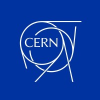
Radiation Effects Testing Engineer (BE-CEM-EPR-2024-113-GRAP)
Job Description
Your responsibilities
Have you ever wanted to be involved in the CERN radiation testing process for qualifying electronics to be installed in the CERN accelerators?
CHARM and CC60 are our irradiation facilities to test and qualify electronic components and systems to be used in harsh environment like the CERN accelerators.
If you relish a challenge, join CERN' s Electronics Production and Radiation Tolerance section and realize your potential. Take part!
You will join the Beams Department (BE), the Controls Electronics and Mechatronics Group (CEM), and in particular the Electronics Production and Radiation Tolerance section (EPR), responsible for the coordination, dosimetry, and operation of the CERN electronics radiation test facilities CHARM (CERN High Energy Accelerator Mixed-field facility) and CC60 (CERN Cobalt-60 facility), and for the Electronics Radiation Effects Monitoring in the CERN accelerator complex.
In this role, you will play a key part in advancing testing support within the CHARM and CC60 facilities, applying your expertise in dosimetry, radiation detection, and monitoring.
Specifically, you will :
- Actively participate in supporting users at the two facilities throughout the whole testing process, from planning to execution, and interpretation of the results;
- Drive research and development of new measurement technologies and detectors designed for complex mixed-field radiation environments;
- Enhance dosimetry practices for tests conducted at the CHARM and CC60 facilities, ensuring precise, real-time radiation level measurements through advanced active and online monitoring systems;
- Participate in the development of new radiation detectors for integrated monitoring devices, to challenge the harsher radiation environment of the High Luminosity LHC and future radiation test facilities.
Your profile
Skills and / or knowledge
- Technical Expertise in Radiation Measurement and Dosimetry;
- Expertise in Detector Technology and Particle Detector;
- Knowledge of Radiation Effects on Electronics;
- Experience in experimental setups preparation and exploitation;
- Competent in data analysis and Python programming;
- Knowledge of Analog and Digital Electronics is an asset;
- Experience in user support in radiation and beam test facilities is an asset;
- Fluent in English.
Eligibility criteria :
- You are a national of a CERN Member or Associate Member State .
- You have a professional background in Electronics, Nuclear Engineering, Applied Physics (or a related field) and have either :
- a Master's degree with 2 to 6 years of post-graduation professional experience;
- or a PhD with no more than 3 years of post-graduation professional experience.
- You have never had a CERN fellow or graduate contract before.
Additional Information
Job closing date : 01.12.2024 at 23 : 59h (midnight) CET.
Job reference : BE-CEM-EPR-2024-113-GRAP
Contract duration : 24 months, with a possible extension up to 36 months maximum.
This position requires :
- Work during nights, Sundays and official holidays.
- Work in Radiation Areas.
- Interventions in underground installations.
- A valid driving licence.
- Work during nights, Sundays and official holidays, when required by the needs of the Organization.
What we offer
- A monthly stipend ranging between 6212 and 6828 Swiss Francs per month (net of tax) .
- Coverage by CERN's comprehensive health scheme (for yourself, your spouse and children), and membership of the CERN Pension Fund .
- Depending on your individual circumstances : installation grant; family, child and infant allowances; payment of travel expenses at the beginning and end of contract.
- 30 days of paid leave per year .
- On-the-job and formal training at CERN as well as in-house language courses for English and / or French.
About us
At CERN, the European Organization for Nuclear Research, physicists and engineers are probing the fundamental structure of the universe.
Using the world's largest and most complex scientific instruments, they study the basic constituents of matter - fundamental particles that are made to collide together at close to the speed of light.
The process gives physicists clues about how particles interact, and provides insights into the fundamental laws of nature.
Find out more on http : / / home.cern.
We are on a Quest. A Journey into discovery like no other. Bring your expertise to our unique work and develop your knowledge and skills at pace.
Join world-class subject matter experts on unique projects, in a Quest for greater knowledge and deeper understanding.
Begin your CERN Quest. Take Part!
Diversity has been an integral part of CERN's mission since its foundation and is an established value of the Organization.
Employing a diverse workforce is central to our success.



